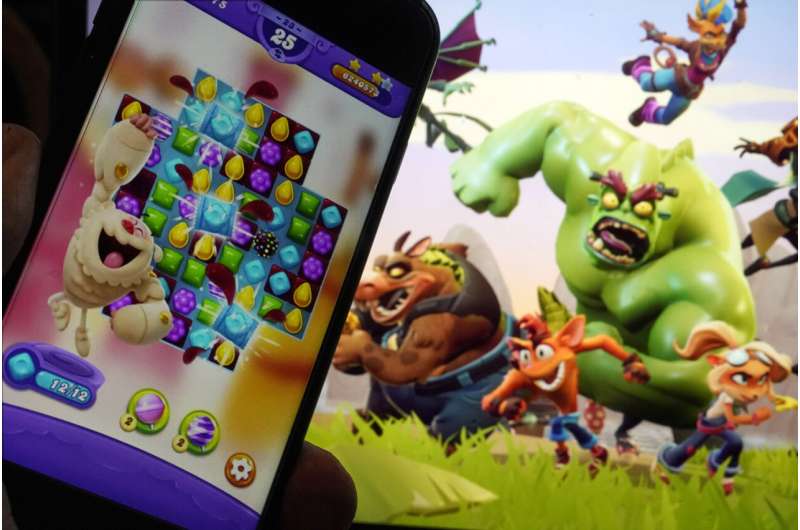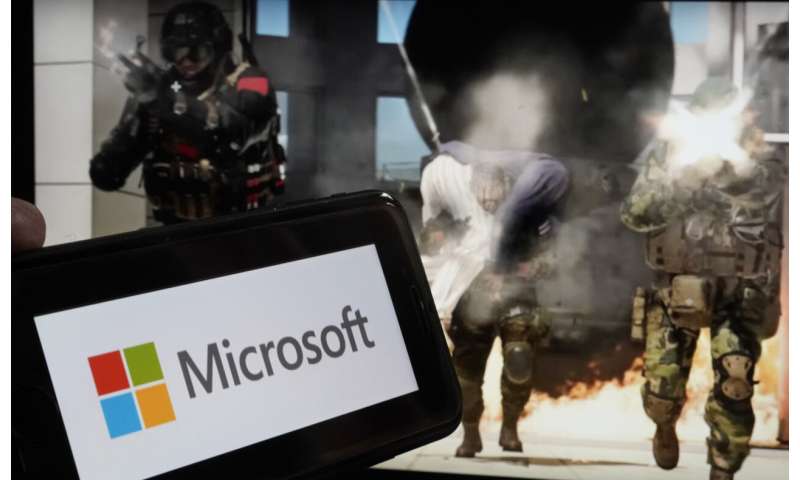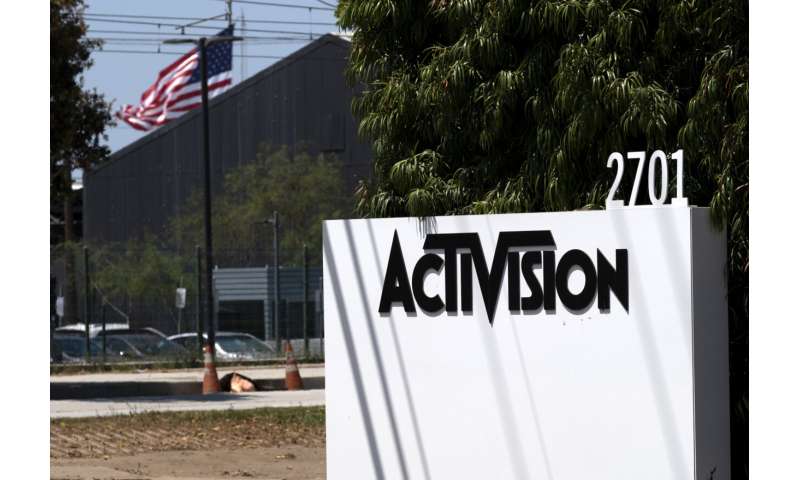Videogame voice actors poised to strike as they battle AI for their jobs

Hollywood is bracing for another actors strike, this time against the videogame industry.
“We’re currently in bargaining with all the major game studios, and the major sticking point is AI,” SAG-AFTRA National Executive Director Duncan Crabtree-Ireland said Thursday. “Actors at all levels are at risk of digital replication. We have strike authorization on that contract and it is, at this point — we could end up going on strike.”
Voice actor Sarah Elmaleh chairs the union’s interactive-media-agreement negotiating committee. “I’ve seen nothing like this in technology to impact our jobs,” she said. “A replicated voice cannot display a spectrum of emotions — yet. For now, it is technology based on averaging and best questions. It lacks nuance.”
The union, which navigated its way to a new film and TV contract after a 118-day strike against the Hollywood studios last year, is again focusing on regulating artificial intelligence and its impact on wages and jobs. “It will be a recurring issue with each successive contract” every three years, Crabtree-Ireland said.
Companies facing a possible strike are Microsoft Corp.’s Activision Publishing, Blindlight LLC, Disney Character Voices International Inc. Electronic Arts Inc. Epic Games Inc., Formosa Interactive LLC, Insomniac Games Inc., Take 2 Productions, VoiceWorks Productions Inc. and Warner Bros. Games
“Actors and actresses should be very much afraid,” Chris Mattmann, an adjunct research professor at the University of Southern California’s Computer Science Department, said in an interview. “Within three seconds, gen AI can effectively clone a voice.”
Videogame studios pay professional actors to voice the aliens, detectives, elves and monsters that inhabit virtual worlds. But increasingly, some are employing realistic, AI-generated voices to save money. And that has cut into actors’ work.
It’s been more than a year since the Interactive Media Agreement, the guild’s videogame contract, was extended beyond its original expiration date. SAG-AFTRA’s last strike against the gaming companies, in 2016-17, lasted about six months.
In September, members overwhelmingly approved a strike authorization on the current contract. The national board has authority to call a strike at any time if negotiations fail.
A spokesperson representing the 10 videogame companies said they are optimistic that a resolution will be reached.
“We are continuing to negotiate in good faith and have made tremendous progress. We have reached tentative agreements on the vast majority of proposals and remain optimistic that we can reach a deal soon,” the spokesperson said in a statement to MarketWatch.
AI horror stories abound
When it comes to AI, Hollywood has been as fraught with tension as any industry — even tech, media or customer service.
A flashpoint came in 2014, when Baidu Inc.’s DeepSpeech technology first converted speech into text. Fast-forward to today, and dialect, inflection and connotation have been refined with voice clones.
“It was the No. 1 topic of discussion at a [voice-over] conference in Atlanta this month,” Joe Davis, a board member of World Voices Organization, the international trade association of voice actors, said in an interview. “Everybody is concerned about AI. It looks like the low end of the market is going away. Where are people going to start in the industry then? In the last six months, the majority of those jobs are going to AI.”
Also read: Tennessee becomes first state to protect musicians and other artists against AI
Marquee actors like Bradley Cooper — the voice of Rocket Raccoon in Marvel’s “Guardians of the Galaxy” — need not be worried, but many cartoon and videogame voice actors are looking at reductions in salary and in the number of jobs.
Most at risk are the thousands of working actors who earn anywhere from $100 a gig to tens of thousands of dollars a year on a project. Increasingly, many are either seeing their roles de-emphasized or are losing jobs altogether to digitally replicated voices similar to their own.
“It’s scary. We don’t know where things are going. Just in the last year, the progression has been insane,” said Rebecca Davis, a videogame voice actor who plays a time weaver in Oculus’s “Asgard’s Wrath 2” and member of SAG-AFTRA. “As far as I know, my voice has not been replicated, but things are popping up with videogames. We don’t really know sometimes, until someone notifies you. The company doesn’t tell you.”
Diana Birdsall, a nonunion voice actor of about 20 years, was abruptly replaced by AI on a phone-messaging service a year ago. The gig had paid $17,000 to $20,000 annually. Just as she was getting over the shock of losing that work, she learned last week that she may have lost a $25,000-a-year job making medical-explainer videos to another AI “voice.”
“There is no compensating for this” loss in revenue, Birdsall said in an interview. “I have to work my butt off more, and I’ve been told I have to sound more authentic. Are you kidding me?”
In 2021, Bev Standing, a nonunion voice actor, successfully sued TikTok owner ByteDance Ltd. for using her voice without her consent.
In her more than 20 years as an actor, including as a voice-over actor, Laurie Burke has done thousands of voice-overs for the likes of Facebook LinkedIn, Apple Inc. and Amazon.com Inc. She started as the original voice of Google Voice and later played an AI voice in the movie “Jexi.”
“AI can’t replicate the emotion of a voice,” Burke said in an interview. “It’s kind of like the drum machine. Drums cannot be improvised.”


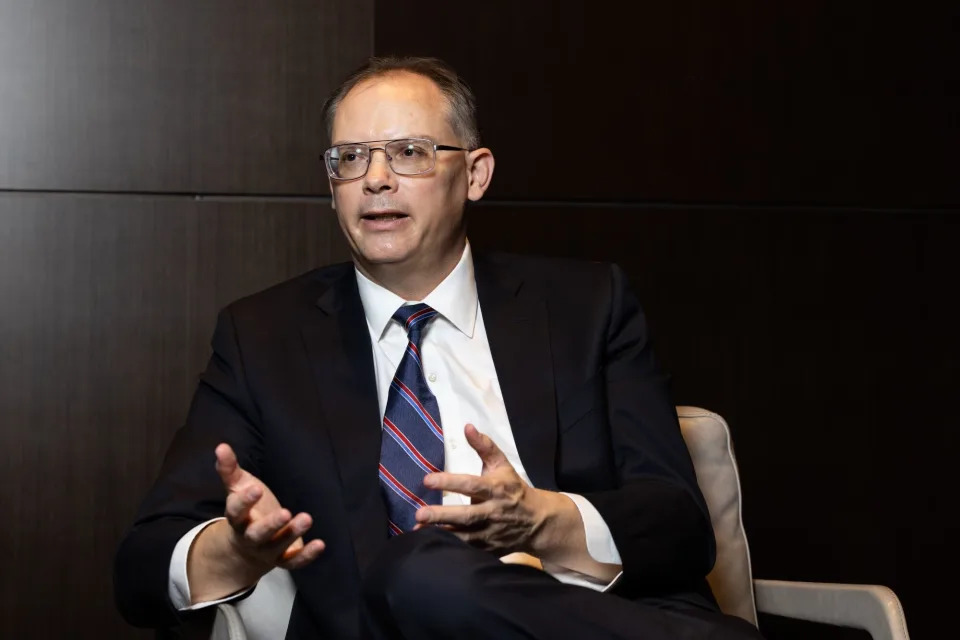
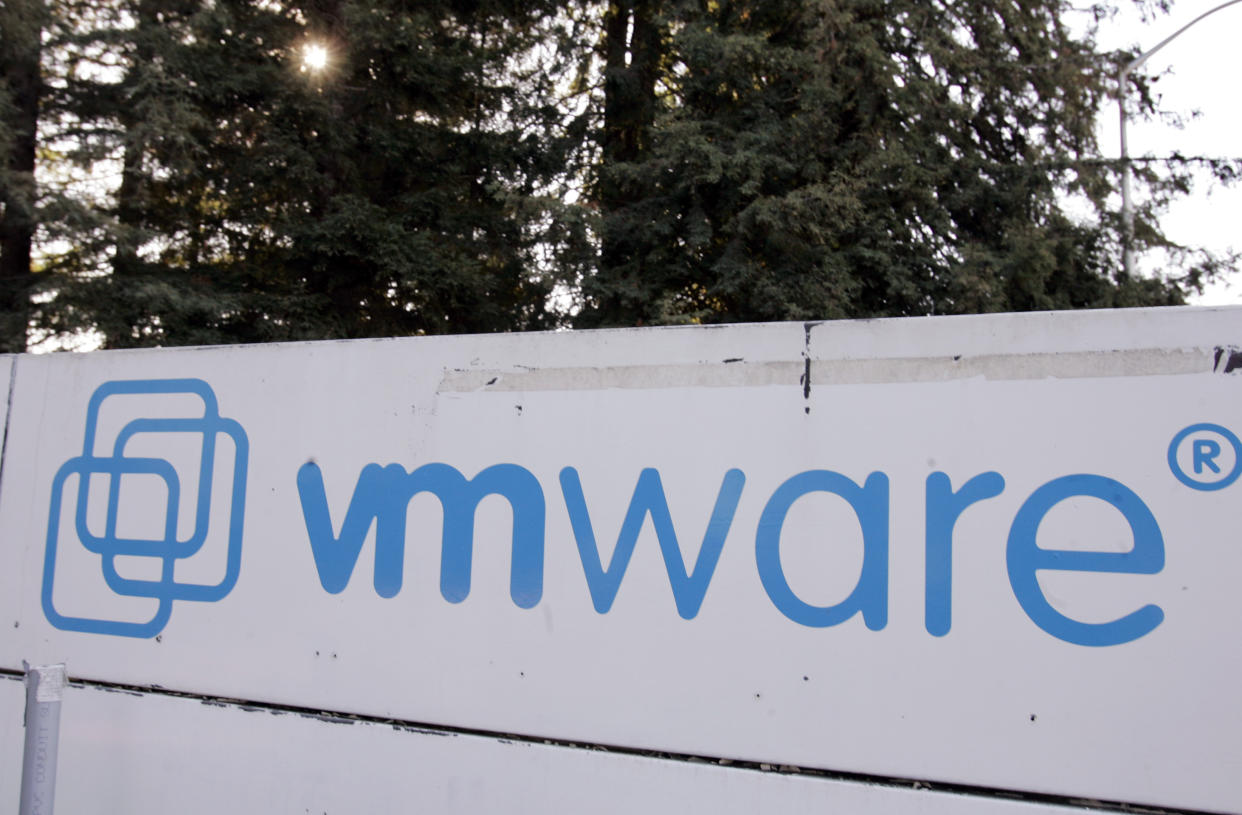
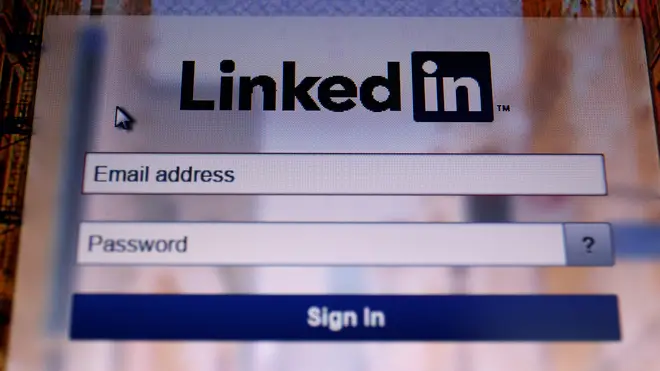
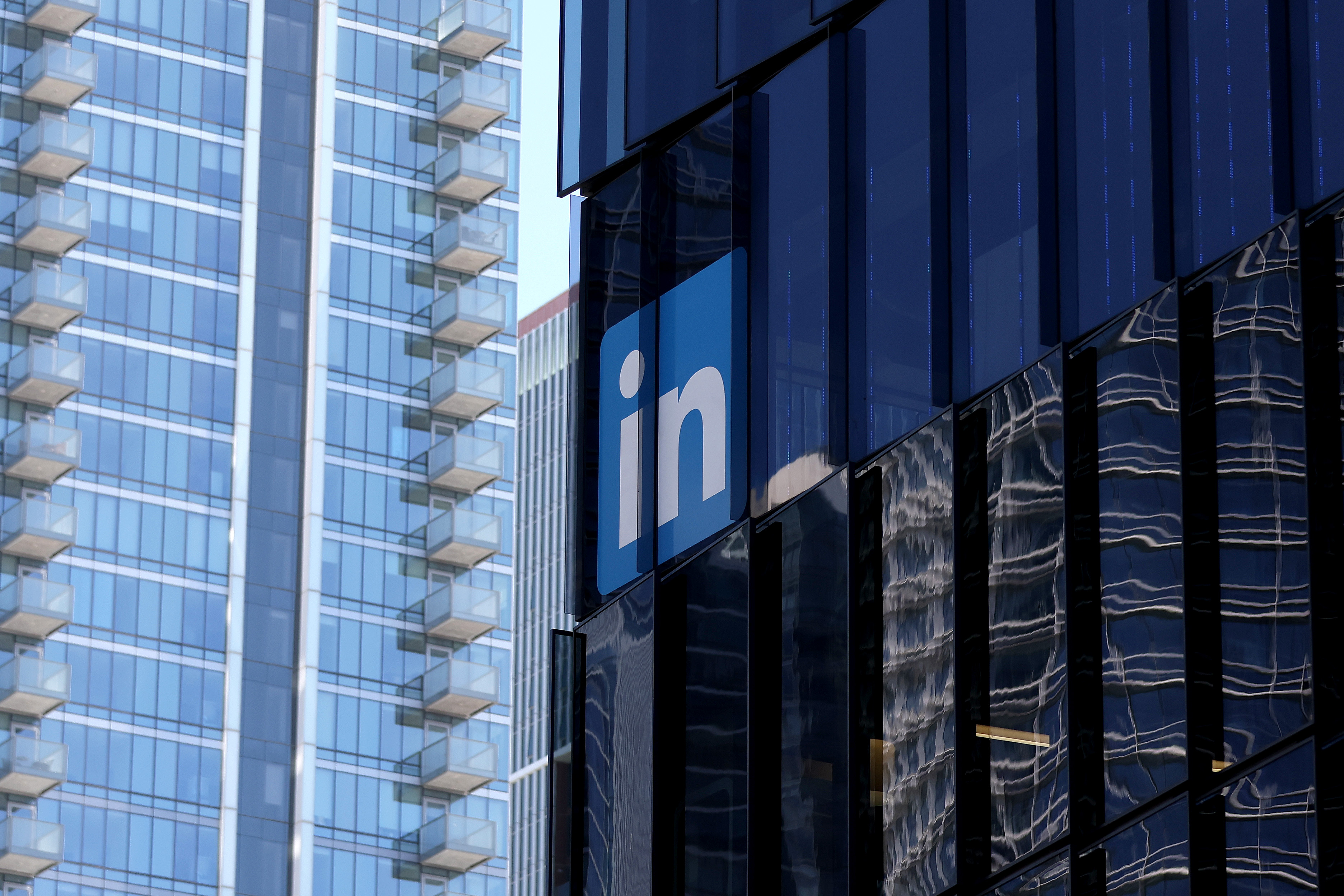

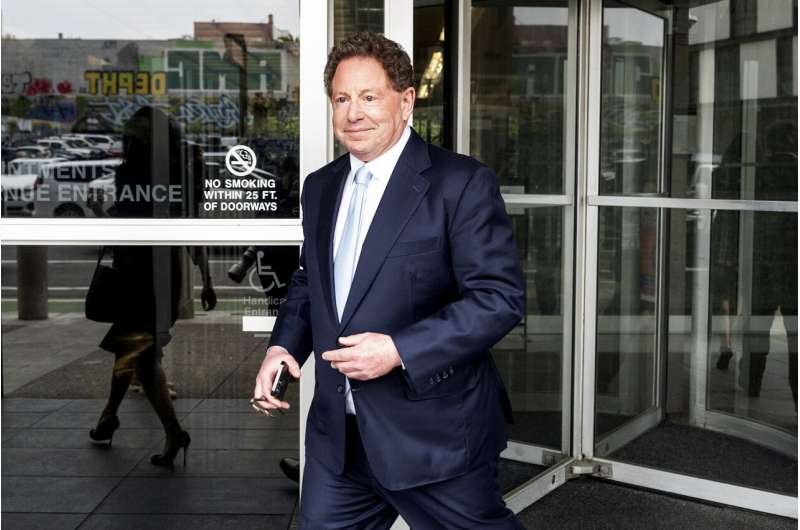 Activision Blizzard CEO Bobby Kotick leaves the Phillip Burton Federal Building and U.S. Courthouse in San Francisco on June 28, 2023. Microsoft, which owns the Xbox gaming system, closed its $69 billion deal to buy game-maker Activision Blizzard on Friday. It marks the end of an era for Kotick, who's led the Southern California maker of Call of Duty since 1991. Credit: AP Photo/Noah Berger, File
Activision Blizzard CEO Bobby Kotick leaves the Phillip Burton Federal Building and U.S. Courthouse in San Francisco on June 28, 2023. Microsoft, which owns the Xbox gaming system, closed its $69 billion deal to buy game-maker Activision Blizzard on Friday. It marks the end of an era for Kotick, who's led the Southern California maker of Call of Duty since 1991. Credit: AP Photo/Noah Berger, File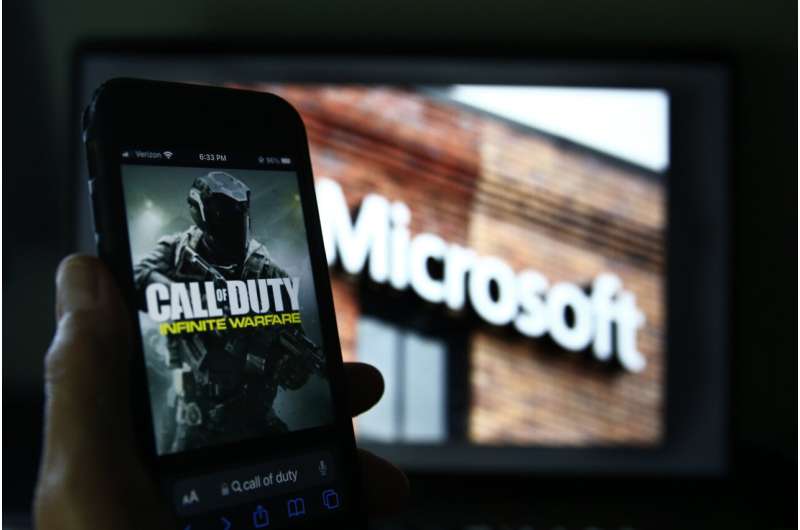 An image from Activision's Call of Duty is shown on a smartphone near a photograph of the Microsoft logo in this photo taken in New York, June 15, 2023. Microsoft’s purchase of video game maker Activision Blizzard won final approval Friday, Oct. 13, from Britain’s competition watchdog, reversing its earlier decision to block the $69 billion deal and removing a last obstacle for one of the largest tech transactions in history. Credit: AP Photo/Peter Morgan, File
An image from Activision's Call of Duty is shown on a smartphone near a photograph of the Microsoft logo in this photo taken in New York, June 15, 2023. Microsoft’s purchase of video game maker Activision Blizzard won final approval Friday, Oct. 13, from Britain’s competition watchdog, reversing its earlier decision to block the $69 billion deal and removing a last obstacle for one of the largest tech transactions in history. Credit: AP Photo/Peter Morgan, File